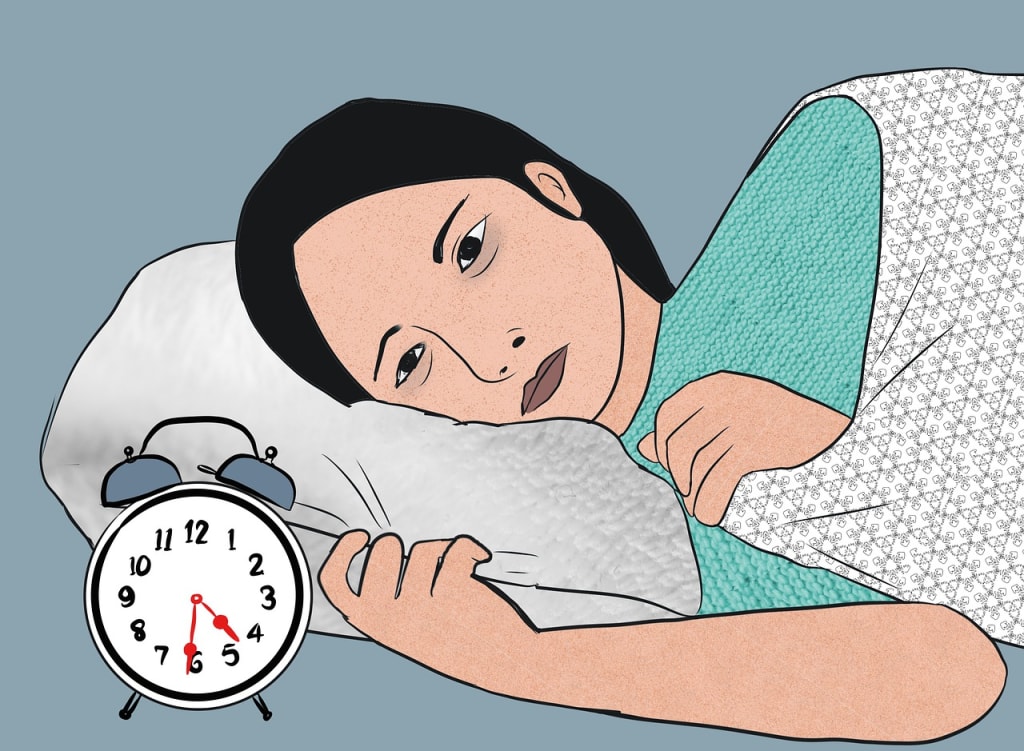
Composition What Health Conditions Beget Insomnia and How to Manage It?
preface
wakefulness is a common sleep complaint that affects millions of people worldwide. It's distinguished by difficulty falling asleep, staying asleep, or passage-restorative sleep. While colorful factors can contribute to wakefulness, one significant cause is underpinning health conditions. In this composition, we will explore the connection between health conditions and wakefulness, understand their impact on sleep quality, and bandy strategies to manage wakefulness related to these conditions.
Understanding Insomnia
Before probing into the specific health conditions associated with wakefulness, let's first understand what wakefulness is. wakefulness refers to the patient's difficulty in initiating or maintaining sleep, which results in poor quality sleep and day impairment. It can manifest in different forms, similar to acute wakefulness, which lasts for a short duration, and habitual wakefulness, which persists for months or indeed longer.
description of Insomnia
wakefulness is a sleep complaint characterized by trouble falling asleep, staying asleep, or passing non-restorative sleep despite having acceptable openings to sleep. It can lead to day fatigue, mood disturbances, reduced attention, and bloodied performance in diurnal conditioning.
Types of Insomnia
wakefulness can be classified into different types grounded on its causes and duration. The primary types include
flash wakefulness This lasts for many nights or weeks and is frequently linked to temporary stress or changes in the sleep terrain.
Acute Insomnia Occurs intermittently and lasts for many weeks, generally due to specific life circumstances or medical conditions.
habitual wakefulness Persists for a month or longer and can be caused by underpinning medical, psychiatric, or environmental factors.
The Link Between Health Conditions and Insomnia
colorful health conditions can disrupt normal sleep patterns and contribute to the development of wakefulness. Understanding these connections is pivotal in effectively managing sleep complaints. Let's explore some of the most common health conditions associated with wakefulness.
Anxiety and wakefulness
Anxiety diseases can significantly impact sleep quality and lead to wakefulness. The constant solicitude, contending studies, and physical symptoms of anxiety make it delicate for individuals to relax and fall asleep. also, the hyperarousal and increased alert associated with anxiety diseases can disrupt the sleep-wake cycle, performing in wakefulness.
Depression and Insomnia
Depression and insomnia frequently go hand in hand. Sleep disturbances, similar to difficulty falling asleep, waking up too beforehand, or passing-restorative sleep, are common symptoms of depression. The disintegrated sleep patterns can worsen depressive symptoms and build a vicious cycle of wakefulness and mood diseases.
Chronic Pain and Insomnia
habitual pain conditions, similar to fibromyalgia, arthritis, or back pain, can beget significant sleep disturbances. The discomfort and physical discomfort make it challenging for individuals to find a comfortable sleep position and stay asleep throughout the night. Accordingly, habitual pain conditions are frequently associated with wakefulness.
Hormonal Imbalances and Insomnia
Hormonal imbalances, similar to those being during menopause or certain endocrine diseases, can disrupt the sleep-wake cycle and contribute to wakefulness. oscillations in hormone situations can lead to night sweats, hot flashes, and other physical discomforts that make it delicate for individuals to sleep peacefully.
Respiratory diseases and Insomnia
Respiratory diseases, including sleep apnea and habitual obstructive pulmonary complaint( COPD), can oppressively impact sleep quality and affect wakefulness. The interrupted breathing patterns, loud snoring, and frequent awakenings associated with these diseases help individuals from getting a peaceful night's sleep.
Neurological Conditions and Insomnia
Certain neurological conditions, similar to Parkinson's complaint, Alzheimer's complaints, and restless legs pattern, can disrupt sleep patterns and contribute to wakefulness. The neurological symptoms, including temblors, muscle stiffness, and leg discomfort, make it challenging for individuals to achieve peaceful sleep.
Managing Insomnia Related to Health Conditions
When dealing with wakefulness caused by underpinning health conditions, it's essential to address both the root cause and the sleep complaint itself. Then are some strategies to manage wakefulness related to health conditions
Seeking Medical Help Consult with a healthcare professional to diagnose and treat the beginning health condition contributing to wakefulness. Proper operation of the condition can help palliate sleep disturbances.
life Changes Borrow healthy sleep habits, similar to maintaining a harmonious sleep schedule, creating a sleep-friendly terrain, avoiding instigations near bedtime, and rehearsing relaxation ways like contemplation or deep breathing exercises.
Cognitive Behavioral Remedy for Insomnia( CBT- I) CBT- I am a proven remedial approach that helps individuals identify and modify negative studies and actions related to sleep. It can be particularly salutary for managing wakefulness associated with health conditions.
Conclusion
wakefulness is a sleep complaint that can be caused or aggravated by colorful health conditions. Understanding the connection between these conditions and wakefulness is pivotal in effectively managing sleep complaints and perfecting overall well-being. By addressing the beginning health condition and enforcing applicable strategies, individuals can witness better sleep quality and palliate the impact of wakefulness on their diurnal lives.
FAQs
Q Can wakefulness be cured fully?
While wakefulness can be effectively managed, a complete cure depends on the underpinning causes and individual circumstances. Seeking professional help and espousing healthy sleep practices can significantly ameliorate sleep quality.
Q How long does it take for wakefulness to resolve?
The duration of wakefulness resolution varies depending on the underpinning causes, treatment approach, and individual factors. With applicable interventions, numerous individuals witness relief from wakefulness within weeks or months.
Q Can specifics help in managing wakefulness caused by health conditions?
In some cases, specifics may be specified to manage wakefulness related to specific health conditions. still, it's important to consult with a healthcare professional to determine the most suitable treatment approach.
Q Does age play a part in wakefulness related to health conditions?
Yes, age can be a contributing factor in wakefulness related to health conditions. Certain conditions, similar to menopause or age-related neurological diseases, can increase the threat of sleep disturbances and wakefulness.
Q Are there any natural remedies or supplements that can help with wakefulness related to health conditions?
Some individuals find certain natural remedies or supplements, similar to valerian root, melatonin, or chamomile tea, helpful in perfecting sleep quality. still, it's important to consult with a healthcare professional before trying any supplements or remedies to ensure they're safe and applicable to your specific condition.
About the Creator
Fahad Ali
I am a professional writer with 5 years of experience in health fitness and more





Comments
There are no comments for this story
Be the first to respond and start the conversation.